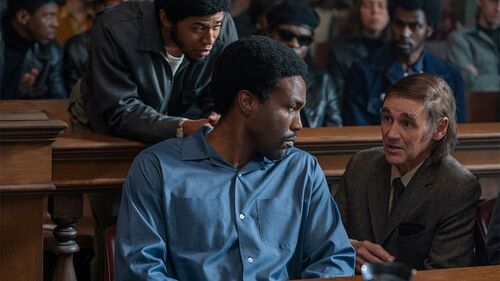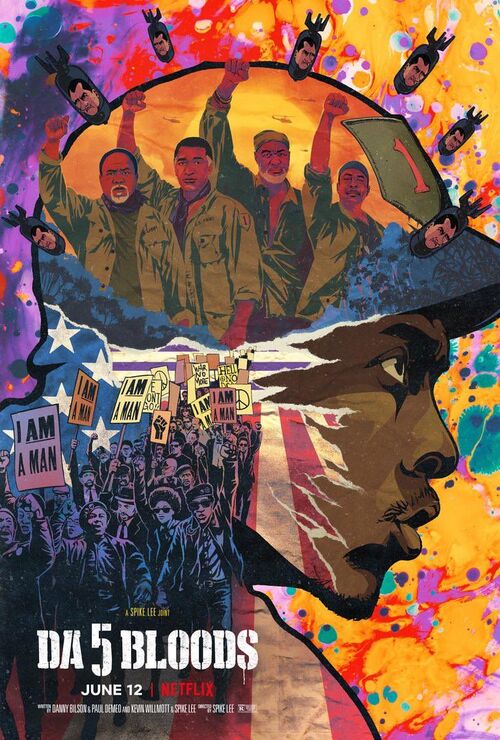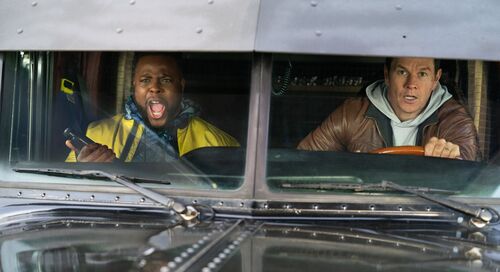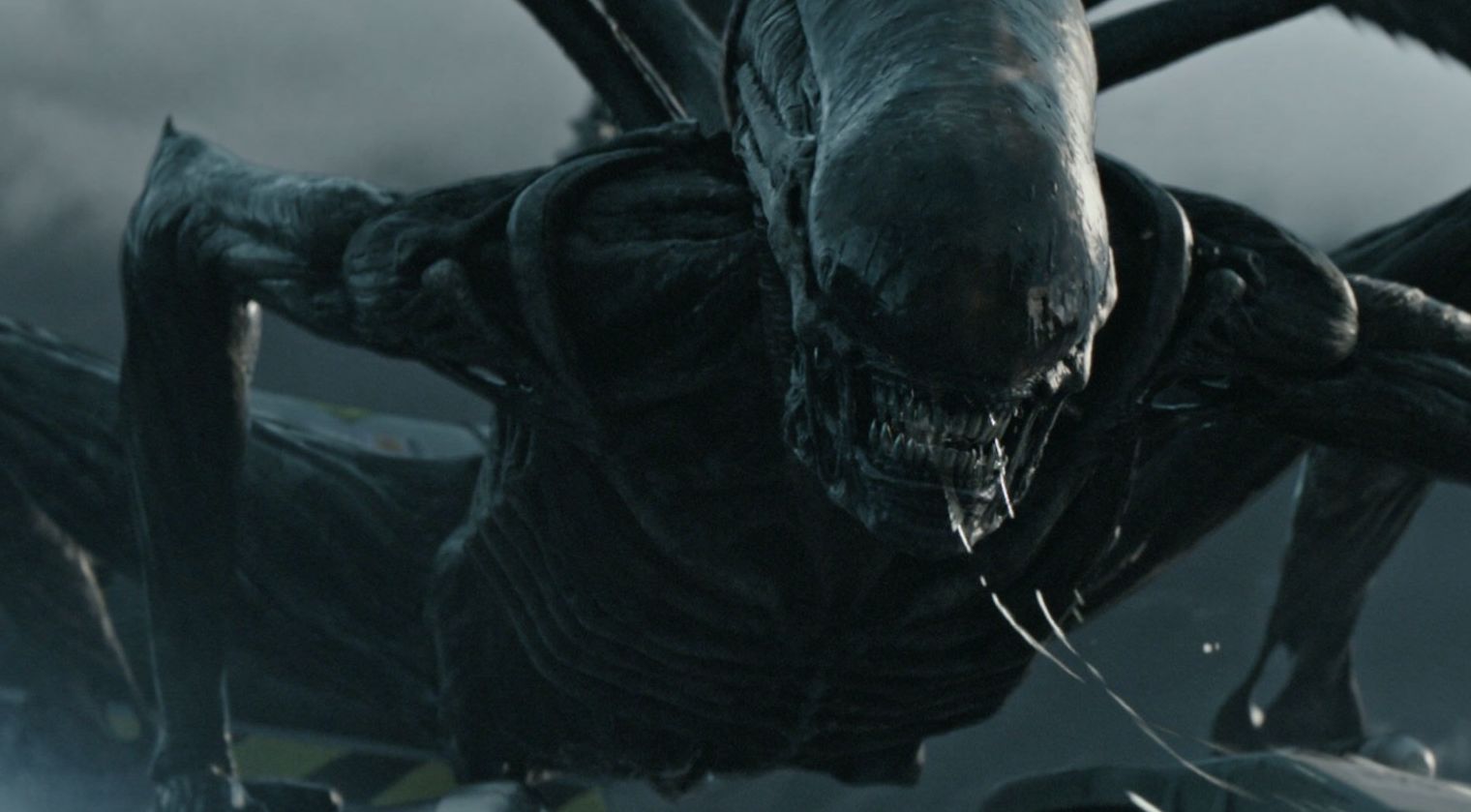
Alien: Covenant
 I now get the Prometheus gripes. Despite being thoughtful and absorbing on a philosophical level, I acknowledged that Ridley Scott’s first Alien prequel was a slippery slope, but a slippery slope I was content to run up and down on. But as we closed in on the denouement of the second Alien prequel, Alien: Covenant, I was certain I would never think of the first two films the same way again.
I now get the Prometheus gripes. Despite being thoughtful and absorbing on a philosophical level, I acknowledged that Ridley Scott’s first Alien prequel was a slippery slope, but a slippery slope I was content to run up and down on. But as we closed in on the denouement of the second Alien prequel, Alien: Covenant, I was certain I would never think of the first two films the same way again.
There is a horrifying calculated truth at the crux of the Alien franchise now. It was easier to process when we were simply dealing with the idea of a vicious killing machine with the innate genetic disposition to hunt and kill any other life form that moves. But there has been a disturbance in the force, much like the one witnessed in 1999 a la George Lucas. The difference here is this isn’t Scott’s baby per se. Also, these new films, whilst mimicking Facehuggers and violating fans, are however peeling off intriguing philosophical layers that speak to the human condition.
I properly saw another Scott monolith, Blade Runner, for the first time this year and I was astounded by the striking biblical allusions Scott juggled; with the salvation story and pseudo-nihilism featuring. The Covenant script seems to draw on the story of Noah and the Babel tower, much like Prometheus. On the surface, there are husband and wife pairings looking to start afresh. On the other hand, we see man not content with the life granted him, pricked by the desire to go beyond the margins stipulated by our makers.
In the bible, God took away man’s ability to communicate to wreak their first inkling of hubris. Then there’s the flood in Noah’s narrative which destroys the world. On a meta level, you wonder if Scott and the apparent new direction of the Alien franchise are exhibiting their own form a hubris by stepping out of the science fiction horror boundaries of the original alien film. Scott himself envisioned it as simply as a science fiction Texas Chainsaw Massacre but, he is now overseeing a film that engages us in an existential discourse that is insistent of explaining the origins of the iconic xenomorph, whilst thoroughly overshadowing the chilling horror elements of the film.
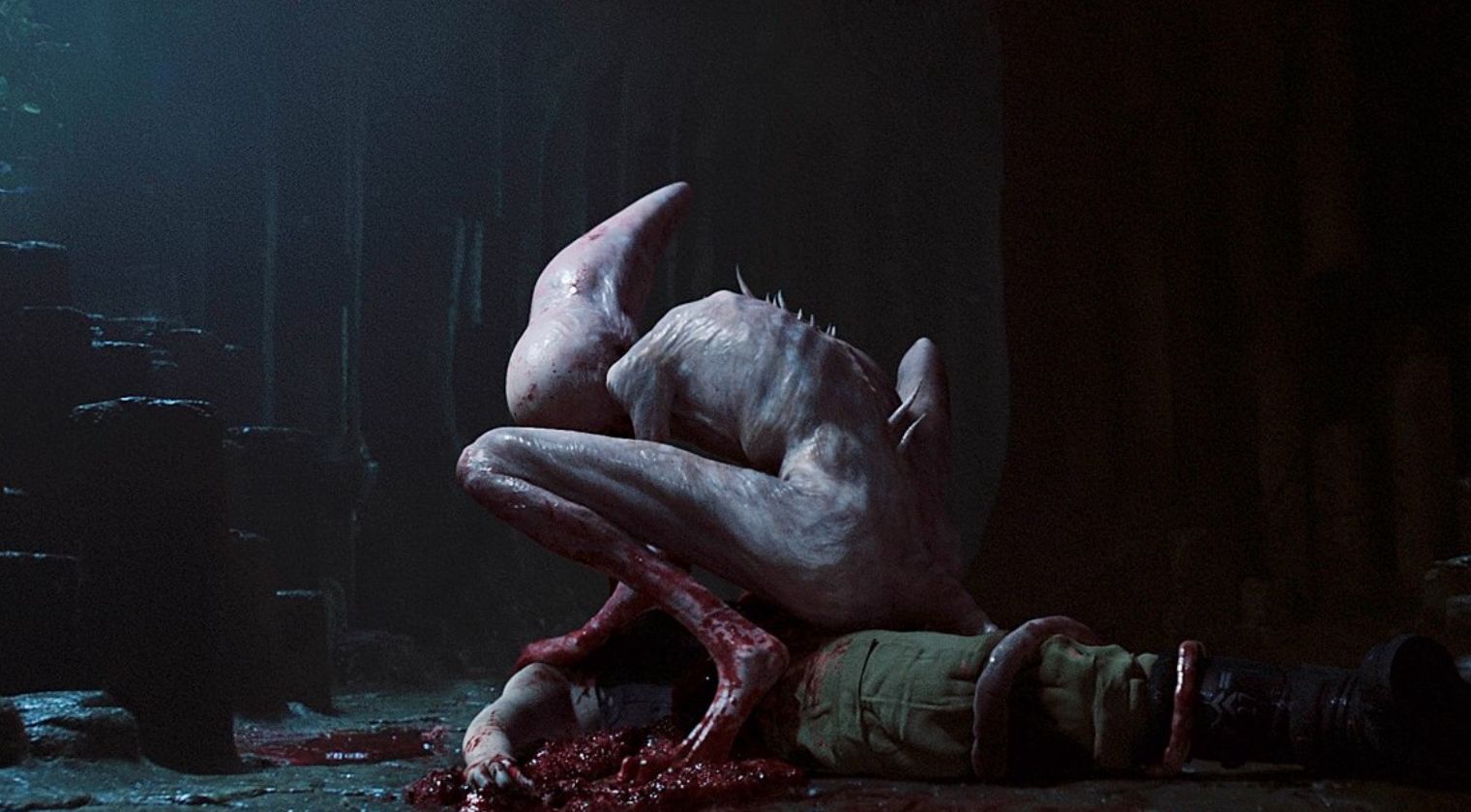
The opening moments of Covenant give an indication as to where the film’s heart is. In moments preceding Prometheus, we meet Michael Fassbender as the android David (from Prometheus), who is birthed ripe to play classical pieces on the piano. There is an early intellectual debate between the disquieting David and his creator, Peter Weyland (Guy Pearce), setting the tone for the ambitious themes and signalling David a critical part of this film.
Fast forward to 2104, when the spacecraft Covenant is on its way to colonising a new planet and we meet Fassbender again, this time playing an updated “less human” android called Walter. He is overseeing operations of the ship as the crew and 2,000 colonists lie in a cryogenic state, years away from their destination. The humans eventually wake up after minor tragedy strikes. Grief seems to be en vogue these days, so much so it wormed its way into an Alien film, but to flaccid extents. The human characters are unfortunately just plot devices that conspire to find themselves on a deadly uncharted planet.
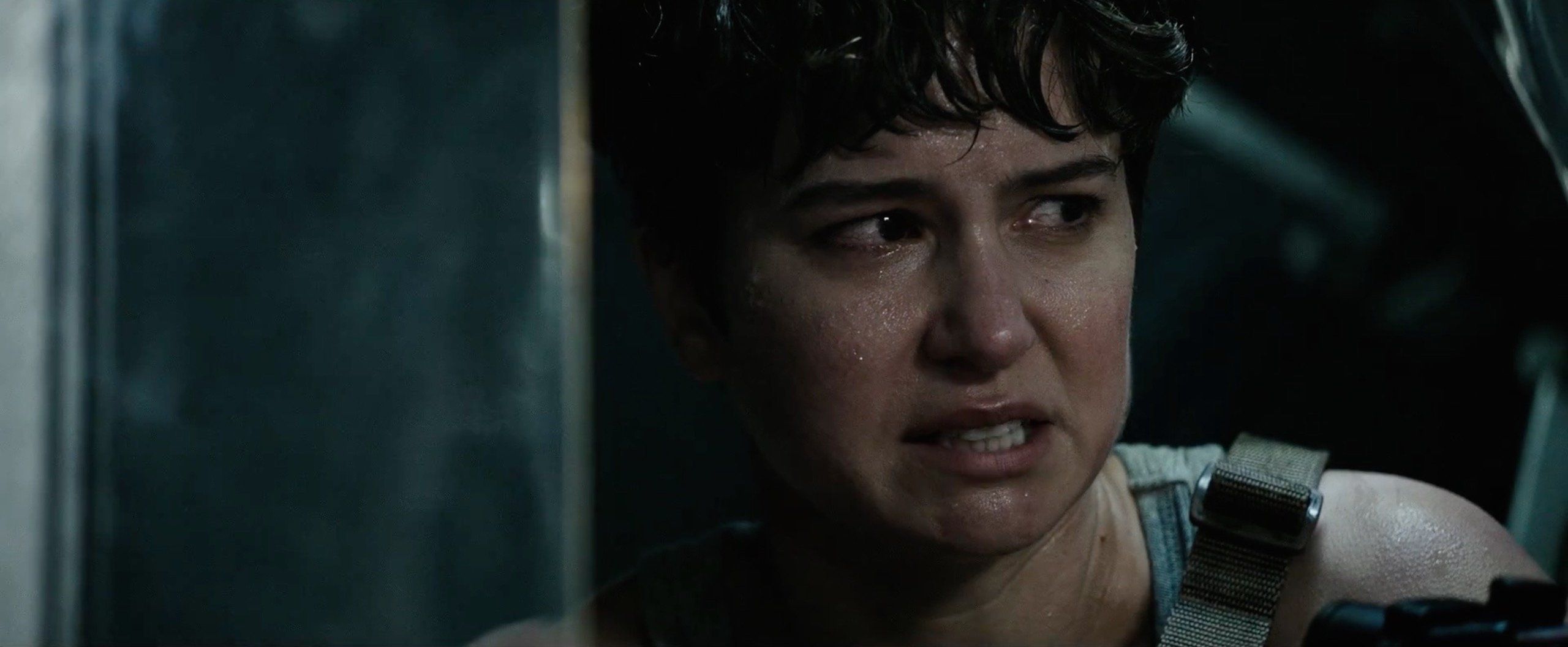
Katherine Waterston as Daniels will won't make waves in the annals of cinematic heroines. You know the “copy my work but don’t make it obvious” meme? That’s basically Daniels and Ellen Ripley. She wears a tank top, holds and big gun and gets chased by a Xenomorph while trying to look gritty. Also featuring prominently are Billy Crudup as Captain Oram; a man of faith in a time when all worship at the altar of science. We also get a surprising turn from Danny McBride as Tennessee, playing the most restrained I have ever seen him.
A dozen other characters show up and most of them end up on the wrong end of a Xenomorph (or the other variations we will come to learn existed like the weird pig skinned type birthed after some crew members ingest a virus), not that there is any right end of a Xenomorph to land on. The screenplay scrapes the bottom of the barrel when it comes to the horror tropes but I will give Covenant this; the first “chest bursting” moment is exceedingly morbid and distressingly violent. This proceeds to kick starts a superbly manic sequence that announces hell to the crew.
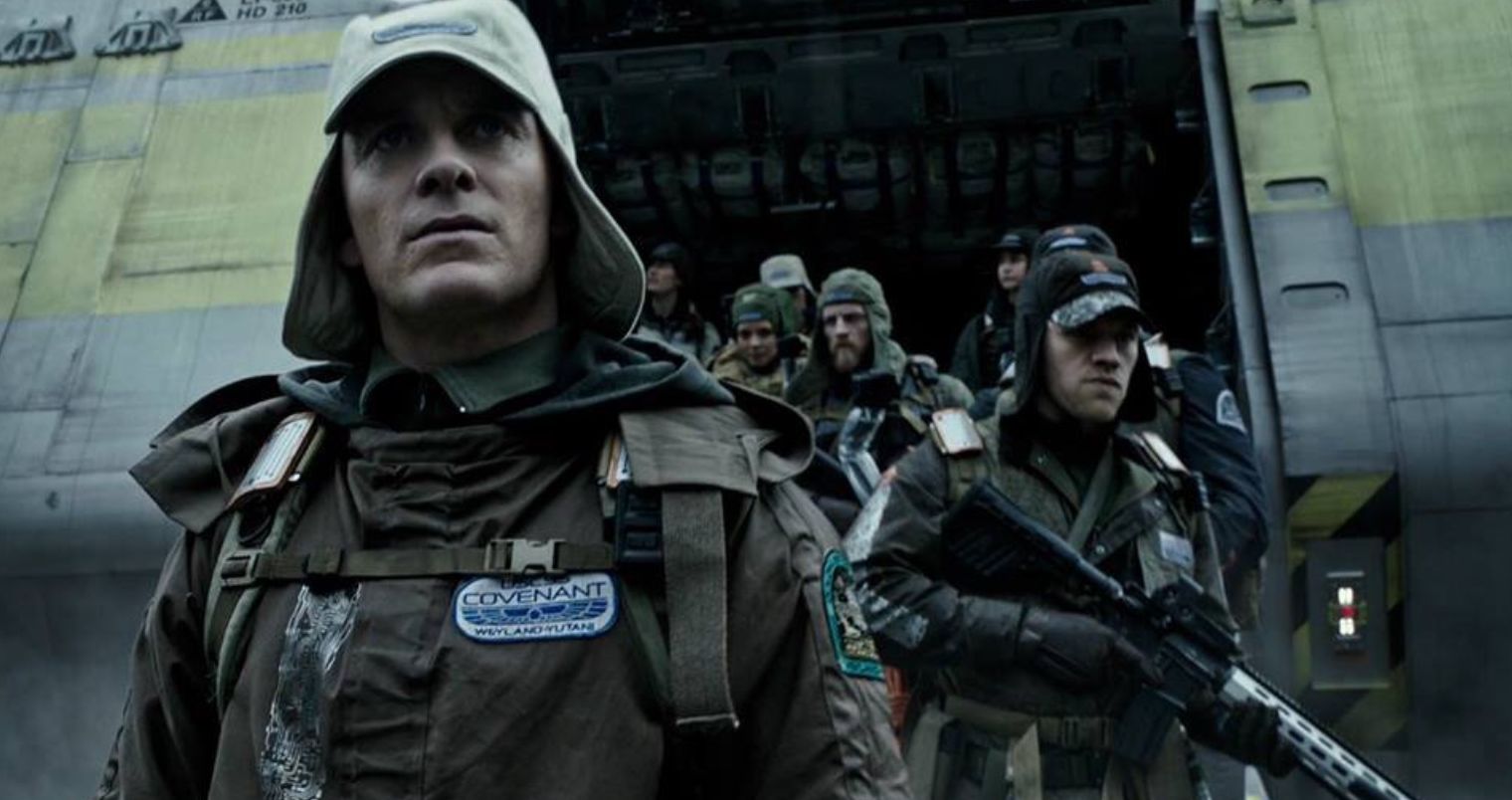
Covenant appeared in such a rush to get rid of its human characters. But then there may be some purpose to this because maybe, just maybe, there is more of a direct connection between androids and humans. I was quite fascinated by Fassebender on Fassebender element that marks the peak of Covenant on varying levels, not least the thespian prowess on show. After the creator-creation debate in the opening, the two androids of differing dispositions have some existential discussions of their own, as the more aware and Ozymandias-quoting David teaches the subservient David to play the flute. It’s simple sequence, but there is so much bubbling beneath.
I imagine there was some digital wizardry at work as Fassbender acts off Fassbender but this is masked expertly by the sublime dim-lit cinematography as Scott sucks us in with his steady takes capturing the moments of intimacy between two androids. Then there’s the bizarre latent sexual undertone that seeps through and it had me thinking of that photoshopped Kanye on Kanye French kiss that rams home the enigmatic rapper’s narcissism. These beats hit home well enough and the point is well made but alas, we are firmly on this slippery slope as this philosophical door doubles as the entry point to the Xenomorph’s origin.
This is the point we say a prayer for the generations that will never experience Alien or Aliens like most of us did. We will also never experience Alien the same again as Covenant strips the Xenomorphs of their chilling mystique. At least the gift of technology permits us a more kinetic version of the rabid extra-terrestrial killing machine. Instead of the expected fright, I found myself more enamoured by how the Xenomorphs cavort with relentless deadly intent ooze menace with their sick grins of death.
The film excels on technical and the detailed sound design impressed and needs to be experienced in the theatre. Scott knows how to create and capture magnificent worlds on camera and the rugged details of this immense production reach out of the big screen invitingly to the audience. There are also some sequences in which Scott evokes the concentrated eeriness of Alien as his camera prowls through hallways and reaches for the manic action vibe of Aliens in moments. Here’s for the fanboys, he seems to say, but Covenant ultimately has different fish to fry.
There is the innate idea, a paradox even, that everyone wants to play God. But we forget what happened to the first person who wanted to be like God. We forget what we call the first person who wanted to be like God. I think Covenant reminds us and I won’t begrudge the film for that. It’s brilliantly thoughtful and intellectually stimulating and executes its ideas in a more than coherent manner. But it is fair to say it left me uncomfortable, given the ease with which it just overwrites out a section of cinematic history, much like a certain genocidal character.
-
By: Delali Adogla-Bessa/delalibessa@yahoo.com/Ghana
